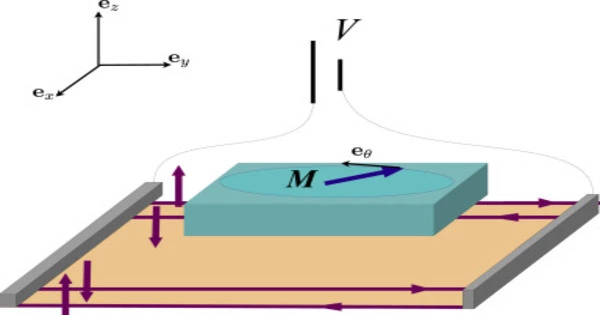An adiabatic quantum motor is a hypothetical device that uses quantum mechanics principles to convert energy from one form to another. It is a mechanical device that can perform cyclic motions and is typically nanometric in size. In this context, the adjective “adiabatic” refers to the point at which the dynamics of the mechanical degrees of freedom are too slow in comparison to the dwell time of the particles passing through the device. It is based on the thermodynamic concept of adiabatic processes, in which no heat is exchanged between a system and its surroundings.
An adiabatic process is one in which the entropy of the system remains constant in classical thermodynamics. An adiabatic process in quantum mechanics refers to a slow and controlled manipulation of a quantum system in which its energy levels are varied while the system remains in its ground state at all times.
The concept behind an adiabatic quantum motor is to design a quantum system, such as a set of interacting quantum spins or superconducting circuits, in such a way that it goes through a series of adiabatic processes, resulting in the extraction of useful work. By carefully manipulating system parameters like external magnetic fields or control voltages, one can drive the system from a low-energy initial state to a higher-energy final state while extracting work.
It is commonly assumed in this regime that the mechanical degrees of freedom behave classically. This class of devices functions essentially as quantum pumps in reverse. While the periodic movement of some parameters in a quantum pump pumps quantum particles from one reservoir to another, a DC current of particles induces the device’s cyclic motion in a quantum motor.
One distinguishing feature of these motors is that quantum interferences can be used to boost efficiency by increasing the reflection coefficient of scattered particles. Although there are several proposals for realizing adiabatic quantum motors, none of them have been experimentally validated.
The theoretical framework for adiabatic quantum motors is based on quantum thermodynamics, a branch of physics that seeks to understand and exploit the thermodynamic properties of small quantum systems. However, it is important to note that adiabatic quantum motors are still largely theoretical constructs, and no practical implementation has been realized so far.
The development of adiabatic quantum motors would have far-reaching consequences for energy conversion and quantum technologies. By leveraging quantum effects and minimizing energy losses, they have the potential to provide efficient and environmentally friendly alternatives to traditional energy conversion devices. However, significant technological challenges must be overcome before adiabatic quantum motors become a reality. These challenges include precise control of quantum systems, minimizing decoherence effects, and scalability to practical applications.
















